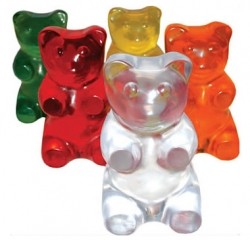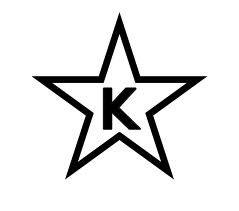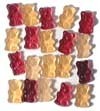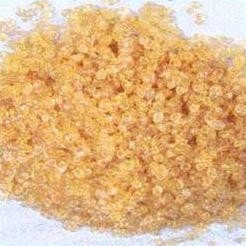Geliko notches up double-digit growth for kosher gelatin

Indeed, many food manufacturers were still unaware that they could buy kosher gelatin, even though it has been on the market for five years, said Zach Rubin from Geliko, which has teamed up with gelatin giant Gelita to promote its kosher gelatin.
Rubin, who was speaking to FoodNavigator-USA.com at the IFT show, added: “Food manufacturers are still surprised when we tell them kosher gelatin is available in industrial quantities.
“A lot of companies [making kosher foods] have used gums and starches instead of gelatin but have found they don’t deliver the same mouthfeel or functionality. Others have just avoided making gummi bears, marshmallows or certain desserts altogether.”
The market potential was therefore huge, because many firms looking to get into this area of the market could now do so, while those already making them but using gelatin substitutes could reformulate and keep their kosher credentials, he said.
Full traceability
Gelatin - a protein found in animal connective tissue – is mostly derived from pig skin, but can also be sourced from fish and cattle hides/bones, and is not considered kosher.
However, Geliko’s gelatin from whole cattle hides (rather than trimmings – the source of most ‘standard’ beef gelatin) has been certified kosher, as the cows in question have been slaughtered and certified as kosher and their hides can be traced throughout the supply chain, said Rubin.
“Geliko has met the strict standards of kosher OU [Orthodox Union – the world's largest kosher certification agency] certification, making its kosher gelatin an industry breakthrough. It’s the first of its kind to be available for mass manufacturing and product development.”
What’s the size of the prize?
While the Jewish community was one obvious target market for kosher foods, most customers were not Jewish, but selected kosher products for quality and safety reasons, he added.
“It’s hard to assess what the market potential is for kosher foods containing kosher gelatin, because up until recently it has not been available, and even now that it is, many companies still do not realize this.”
A Packaged Facts report published in 2009 estimated that certified kosher food sales through US grocery stores jumped from $142bn in 2003 to $211bn in 2008, and were expected to surpass $260bn by 2013, driven in large part by non-Jewish customers (only around 2 percent of the US population is Jewish).
Many of the big confectionery companies have also tried to cash in, with Haribo now offering a kosher line sold exclusively through Paskesz and Mars recently announcing that all products manufactured at its Slough, UK, factory will be certified Kosher by the Kashrut Division of the London Beth Din.
Kosher dietary supplements
Geliko’s granulated, instant and hydrolyzed kosher gelatin was suitable for use in a range of food products, but there was also potential in the dietary supplements and pharmaceuticals markets, said Rubin.
“In the past, the attitude in the Jewish community has been that in the case of medicine, if you need it, you should take it, even if it’s in a gelatin capsule.
“But if kosher alternatives are available, you should choose those, so there is an opportunity to make kosher gelatin hard and soft gel capsules, tablet coatings and encapsulated products.”
What is kosher?
‘Kosher’ means fit, proper or acceptable food under Jewish law. While kosher laws have their origin in the Bible, they are also detailed in the Talmud and the other codes of Jewish laws.
According to the Bible, certain animals including pigs, rabbits, shellfish, insects and reptiles are not kosher, while kosher meats and fowl must be slaughtered in a prescribed manner.
Meanwhile, processing equipment involved in kosher food production must also be inspected by a rabbi and must not be used in non-kosher food production.
Geliko’s products are available directly from Geliko, Miami-based firm Food Industry Technology or Gelita USA.










